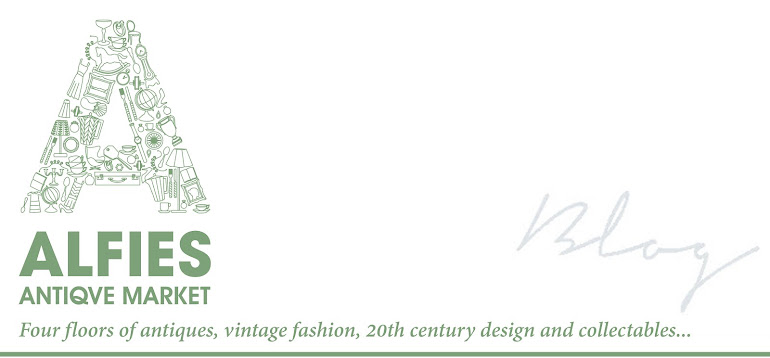In celebration of the 2014 London Design Festival, from tomorrow
Saturday 13th September until Friday 10th October, Design SECT at Alfies will be dedicating their
gallery space to the works of Friso Kramer and Wim Rietveld, two of the most
important names in Dutch industrial design from the post-war era. With this in
mind we thought it would be interesting to explore Dutch MidCentury design
further.
Twentieth Century industrial design has firmly established its place
in our Twenty-First Century choice of interiors, both at home and in our workspace.
However, with iconic pieces by the likes of Prouvé and Perriand far beyond the
reach of all but the most serious collector, awareness and appreciation is
growing for these Dutch stars. The influence of the De Stijl movement and their
observation of the Geod Wonen movement – the Dutch foundation set up in
1948 to promote well-designed domestic goods - make their designs as appealing
and relevant today as they were over fifty years ago.
The De Stijl movement began in 1917 in the Netherlands and was led by
painters Theo van Doesburg and Piet Mondrian, who also created a journal of the
same name; ‘De Stijl’ literally meaning ‘the style’ in Dutch. The movement was
partly a reaction to the decorative excess of Art Nouveau and partly a way of
rebuilding society after the horrors of World War I; the creators seeing the
style as a stripped back aesthetic which would speak to everyone the world over
and be appropriate for a new, and largely rebuilt, modern society. With a
simplistic approach and heavy focus on geometric and abstract patterns, straight
lines and primary colours, their work was designed to be a perfect marriage
between form and function. De Stijl's
influence was perhaps felt most noticeably in the realm of architecture, but
also covered fine art, typography and literature.
The architect Gerrit Rietveld was another Dutch luminary who was a
member of the movement; father of Wim Rietveld, Gerrit’s
designs included the famous Red and Blue chair and the Schröder House, Utrecht.
 |
| Red Blue Chair (c1923) by Gerrit Rietveld |
Later on, in the
post-war years, and inspired by the De Stijl approach, the Goed Wonen (Good
Living) Foundation promoted the benefits of well-designed domestic goods. This
time a reaction to the Second World War the foundation wanted to
improve on the lack of good materials available and gave lectures, exhibited
their work widely, offered tips for and articles about modern living and the growing
modern style. The simple, functional approach is evident in the designs of both
Kramer and Rietveld.
Background on the Designers
Friso Kramer (Netherlands 1922) is a highly influential designer. He
produced numerous pieces for Ahrend De Cirkel in the period 1948-63 including,
in 1953, the Revolt chair. In 1963 he founded the Total Design bureau with Wim
Crouwel, Benno Wissing, Paul and Dick Schwartz. His designs are increasingly
sought after, and a plastic version of his Revolt chair has been reissued by
Ahrend in recent years. Archives now held by Netherlands Institute for Art
History in The Hague.
Wim Rietveld
Wim Rietveld (1924-1985) was a designer whose work spanned furniture,
lighting and also boats, trains and household appliances.
In 1949, Wim Rietveld joined Gispen as designer. There he introduced
‘furniture for simple interiors’, in line with the thoughts of Goed Wonen (or
“Good Living”). Later at Ahrend he worked with Friso
Kramer, where the two designed the Result chair and Reply drawing table.
Rietveld also designed the Pyramid table, with its clear Prouvé influence.
Both
Kramer and Rietveld won the Signe d’Or for numerous pieces throughout their
careers.
Design SECT will be showcasing a range of original pieces from both designers, dating from 1950s to the 1960s. Also on show will be Ahrend’s reissued Revolt chair, available by special order from the gallery.





No comments:
Post a Comment